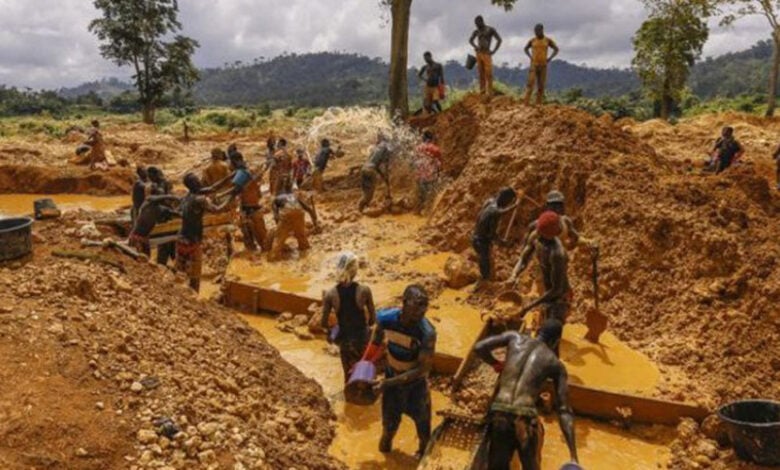Samuel Nartey George, the Member of Parliament representing Ningo Prampram, has drawn a stark comparison between illegal mining activities, known as “galamsey,” in Ghana and the cocaine trade prevalent in Colombia. He argues that, similar to the drug trade, galamsey has transformed into a major illicit industry that has been allowed to proliferate due to a lack of decisive governmental action over the years. Samuel Nartey George’s assertion reflects a growing frustration among Ghanaian citizens regarding the persistent environmental and social harms caused by illegal mining, as well as the perceived complicity of those in power. In his social media post, he criticized the ruling New Patriotic Party (NPP) for failing to act against galamsey and implicated the government in perpetuating these harmful activities.
George emphasizes the involvement of organized crime within the galamsey operations, citing the existence of cartels that include not just illegal miners but also politicians, traditional leaders, and even security personnel. He holds President Nana Akufo-Addo ultimately responsible for the situation, as he believes the President has the authority to take action against those involved in illegal mining yet has chosen not to do so. This highlights a broader concern regarding governance and accountability in Ghana, especially when it comes to managing natural resources and protecting the environment from degradation caused by illicit mining practices.
Highlighting the cross-party nature of the issue, George insists that all political affiliations should be disregarded when addressing galamsey-related crimes, labeling those involved as “wicked criminals.” His call to action transcends partisan politics, urging a unified and honest approach to tackling the illegal mining crisis. By emphasizing the need for truthfulness in confronting this issue, George suggests that only with a rigorous and sincere examination of those involved can effective solutions be pursued. He expresses skepticism about the government’s commitment to this cause, accusing President Akufo-Addo of benefitting from and being complicit in the galamsey operations.
The public sentiment around galamsey has intensified in recent weeks, resulting in mounting pressure on President Akufo-Addo to fulfill his promises to combat illegal mining. Citizens are increasingly calling for the government not only to acknowledge the dangers of galamsey but also to take resolute measures to curb its impact. This growing urgency among the populace indicates a broader desire for accountability and responsible leadership from the government, particularly in light of the lasting damage illegal mining poses to Ghana’s ecosystems and communities.
This rising awareness regarding the detrimental effects of galamsey comes in the wake of various failed policies and initiatives aimed at addressing the crisis. Many Ghanaians have witnessed the devastation wrought by illegal mining, including water pollution, deforestation, and the displacement of communities that rely on their natural environment for sustenance. The government’s inability to address these ongoing challenges effectively has led to disillusionment among citizens, spurring protests and calls for a necessary change in approach.
In conclusion, Samuel Nartey George’s comparison of galamsey to Colombia’s cocaine trade underscores a critical parallel about the dangers of unchecked illegal activities in Ghana. His advocacy for accountability and a non-partisan approach to combatting galamsey reflects a growing demand for urgent and effective action from the government. As pressure mounts on President Akufo-Addo and his administration to address this pervasive issue, the future of Ghana’s environment and the livelihoods of its citizens hang in balance, pending a decisive response to the ongoing galamsey crisis. The discussion around illegal mining in Ghana is not merely a political concern; it embodies a significant struggle for justice and environmental sustainability that must be faced head-on.


